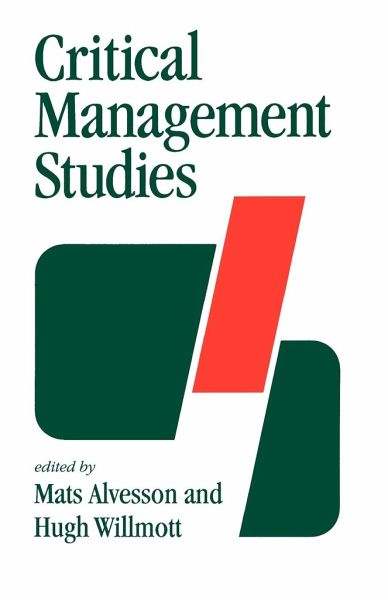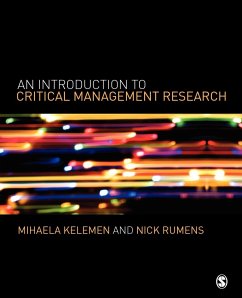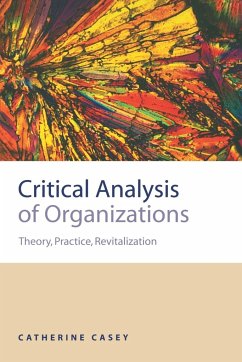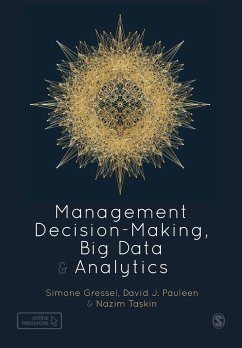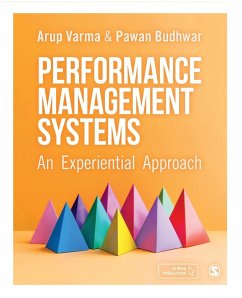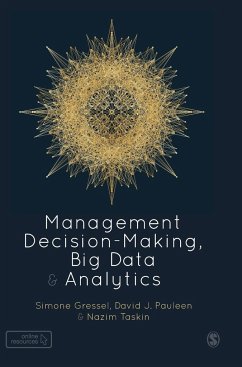`Aspires to provide a more focused, explicit and coherent representation of a `critical theory' perspective on management that draws its ethical, ideological and intellectual inspiration from, mainly, Habermas and Foucault. In this respect the underlying rationale for this book is based on a highly ambitious intellectual project insofar as it attempts to pull together the highly diverse, not to say disparate, theoretical stands which go to make up `critical theory' and to assess their interpretive and explanatory potential in the field of management and organization studies.' - The Occupational Psychologist
`It is interesting because it shows how several areas of management, long known
as bastions of positivism, could be reformed to address the emancipatory interests sought by Jurgen Habermas's approach to critical theory. The book is useful because it proposes a strong scholarly agenda for applying critical theory to diverse areas of management studies and for potentially integrating these areas.... The book's depiction of a route to a truly general, multidisciplinary field of `management' is one of its key contributions... the book is definitely interesting and useful.... The book makes a solid case for a strong program of research involving critical management studies and provides clear directions in terms of proposed research agendas to carry out the program. The book can be safely and usefully employed to carry out this agenda by scholars with a grounding in critical theory and interpretive perspectives.' -
Academy of Management Review
`Offers a stimulating and, in some ways, biting commentary on the current status of management research... the authors certainly attempt a more interesting analysis of organizational management than is nornally the case.... Overall, it has to be said that this volume is a stimulating read.' -
British Journal of Management
`The topics are well chosen, and the contributors well-versed in their field... the content and arguments of the contributors are highly thought-provoking' -
Journal of the Operational Research Society
`I enjoyed reading this book. To the credit of the editors, both its general conception and its implementation are excellent. Not only was their selection of authors adequate but also, it is apparent, they managed to get individual contributions well in line with the global purpose of the book. Each contribution succeeds in adding relevant insights and making apparent critical research issues. The authors show how management cannot be seen simply as a neutral, `technical' function concerned with the production of certain goods and services. Rather it is a highly complex and significant social phenomenon which can and should be the subject to serious examination. Of special interest to the OR-community is the paper of J Mingers. He shows that the history of OR can be seen to reflect a movement from the technical (Wagner), through the practical (Checkland) towards the critical (Jackson).... For me, this book is a must as a reader for students and practitioners of management sciences, operations research, and systems sciences.' -
European Journal of Operational Research
`Alvesson and Willmott have compiled an interesting and provocative collection on the application of Critical Theory (CT) to the study of management and organization' -
Management Learning `This is a useful contribution to the management literature and should be obligatory reading for management students. What makes it particularly attractive is its structure. After an introductory chapter by the editors, there follows nine contributions addressing different aspects of management. Some deal with specific functional issues - OR, accounting, marketing, human resource management, systems - and others with more general concerns such as power, pleasure, production and proselytization of knowledge. The advantage of this approach is that it introduces students to the idea that all aspects of management, as a practice, as a body of knowledge, and in terms of education, are problematic and that, though they are disparate issues, they are amenable to a common critique' -
Systems Practice
`A key contribution of the volume is that the authors try to communicate abstract, jargon-laden critical theory in language accessible to business school types.... A strength of the volume is the breadth of coverage. The editors and authors avoid the usual fragmentation of scholarship by business scholl departmental organization.... The editors achieve another aspect of breadth by including European and American writers. Together, these chapters provide a rich overview of challenges to the mainstream.... many of the chapters go beyond criticism. They make a number of positive contributions to a less-biased, more reflective management scholarship' -
Administrative Science Quarterly
